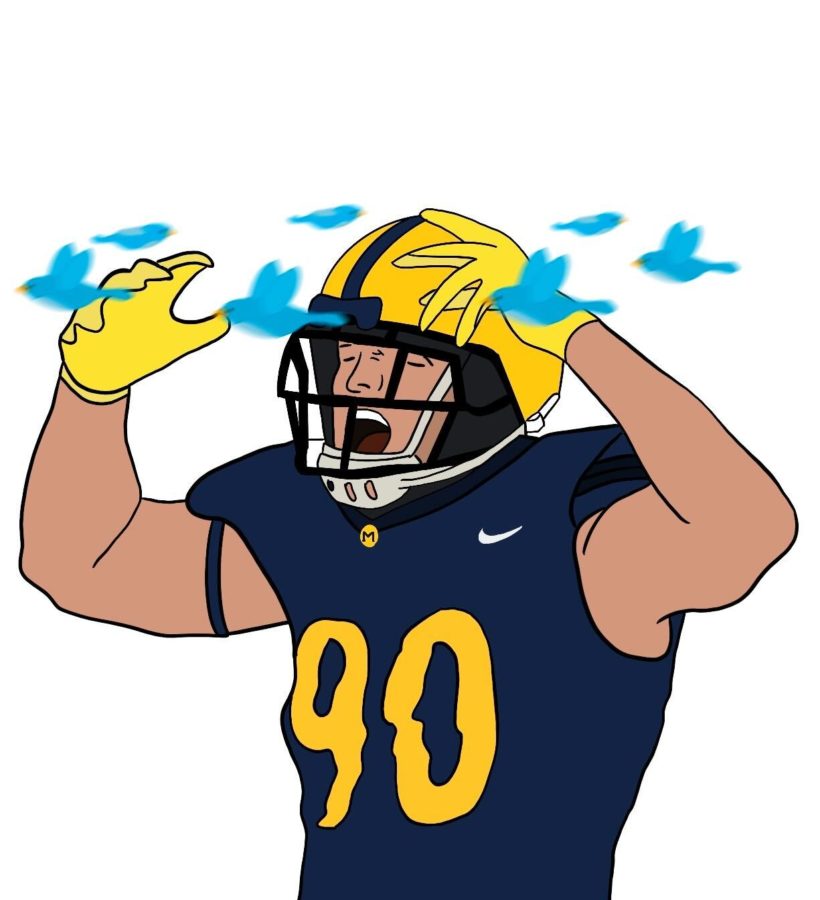Miami Dolphins franchise quarterback Tua Tagovailoa was at the center of the NFL’s concussion controversy, after seemingly suffering concussions in back-to-back games on Sept. 25 and Sept. 29. As a result, the NFL’s concussion protocol — and possibly the future of the sport — continue to be questioned fervently.
In light of the Tua Tagovailoa concussion saga, how do you believe the NFL should protect its players from repetitive concussions? Should the NFL adopt stricter rules to prevent concussive blows to its players?
Alex:
It’s becoming more and more obvious that the NFL’s concussion protocol is designed to allow players to return to action as quickly as possible, without much regard to their short-term or long-term safety. While there is a supposed “independent neurological expert” on sight to monitor players’ health, this system has been proven ineffective in light of the doctor’s mishandling of Tua Tagovailoa’s injury sustained versus the Buffalo Bills.
While the NFL and NFL Players Association are currently working together to modify concussion guidelines, Tagovailoa’s journey in and out of the concussion protocols shows that more needs to change in the NFL than just the protocols. The NFL’s executives, coaches and staff need to recognize that their role includes protecting the players, no matter what — a position that is evidently not held in football.
In the world of combat sports, it’s considered the corner’s role to “protect the fighter from himself.” In other words, even if the fighter wants to continue but is obviously not able to do so, the fighter’s coaches are obliged to step in. A similar mindset must be adopted in the NFL if the league wants to be respected by the American public.
Penelope:
As Alex discussed, the NFL’s concussion protocol is simply not enough; both the “independent neurological expert” hired by the NFL and the team physician have their checks written by the league, and, regardless, there are essentially no concrete protocols for these experts. They determine if and when a player can return, with little oversight.
When a player first demonstrates signs of a concussion, they are only subject to quick tests on the sidelines, which take minutes and can determine a players’ fate. According to Chris Nowinski, a neuroscientist and co-founder of the Concussion Legacy Foundation, doctors can also conclude concussion symptoms, for example a player struggling to stand, are instead symptoms of other injuries, which is likely what occurred to Tua Tagovailoa in his game against the Bills.
Although concussions can heavily vary from player to player, it’s imperative that the NFL develops a stricter timeline for when players can return to play after suffering a concussion. Players should be required to sit out a certain number of games, no matter how serious the concussion, before they are allowed back to play. Furthermore, when players endure heavy hits to their heads, the kind of hits that cause concussions, they should be examined for a minimum period of time, off the field, in the locker room.
The NFL touts their “player first” mentality but they are underdelivering. They need to set in place stricter guidelines, no matter how unpopular they may be, that ensure players don’t get back on the field with a possible concussion.
Do you believe that athletes will (or should) begin turning away from the game of football in favor of less dangerous sports?
Penelope:
While it’s been known for years the impact that numerous concussions have on football players, Tagovailoa’s hit will be remembered. From the gruesome injury video to the NFL Players Association working with the NFL to change their concussion guidelines, it’s clear that this story won’t simply fade away. Even before Tagovailoa’s incident, high school football participation has been fading; From 2008-2018, the total number of youths aged six to 18 playing football dropped by more than 620,000, with many parents and students citing reasons of concussions, Chronic Traumatic Encephalopathy (C.T.E.) and a lack of physical contact restrictions. They aren’t being overzealous either, studies have found a link between athletes who began playing tackle football before age 12 and the development of CTE symptoms, on average, 13 years earlier than those who began playing later in their teenage years. While the athletic stardom of football is promising, the lifelong effects of concussions are not; parents need to turn away from football and towards safer sports.
Alex:
Despite the heightened focus on concussions this year, I don’t believe the inherent danger of the sport is going to turn elite athletes away from the game. We’ve known about the dangers of concussions and CTE since Dr. Bennet Omalu’s groundbreaking research, and the popularity of football has not waned in the decades since. If anything, the mishandling of Tagovailoa’s concussions will embolden football programs — from the youth to professional levels — to adopt more stringent safety measures, such as mandatory use of guardian caps. That in turn could comfort parents’ and players’ concerns, although we are likely years away from this change.
How does this recent development — and the issue regarding concussions and CTE in general — affect your fandom of football?
Penelope:
Although I enjoy watching the games on Sundays, I’ve never believed the NFL to be an ethically decent and well-run league. From the sexual assault scandals to their handling of players kneeling during the national anthem, the NFL has never been morally sound. The NFL generated $11 billion dollars last year and with deals with Amazon, Fox, Disney and more, with no signs of stopping. The only people with power to change the way the NFL handles concussions are the players themselves, but that’s a weighty responsibility to place on them.
We can go back and forth all we want, but at the end of the day professional football has one goal: make money, all else is second priority.
Alex:
I’ve been a diehard football fan my entire life, and a corrupt system in the NFL is not going to change my love for the game. What is going to change is how outspoken I am about issues that I see in the league because I now have a better understanding of the inherent issues with the game.
By advocating for increased concussion prevention, while also watching games every Sunday, we can make a positive impact to ensure that the sport continues to thrive.


